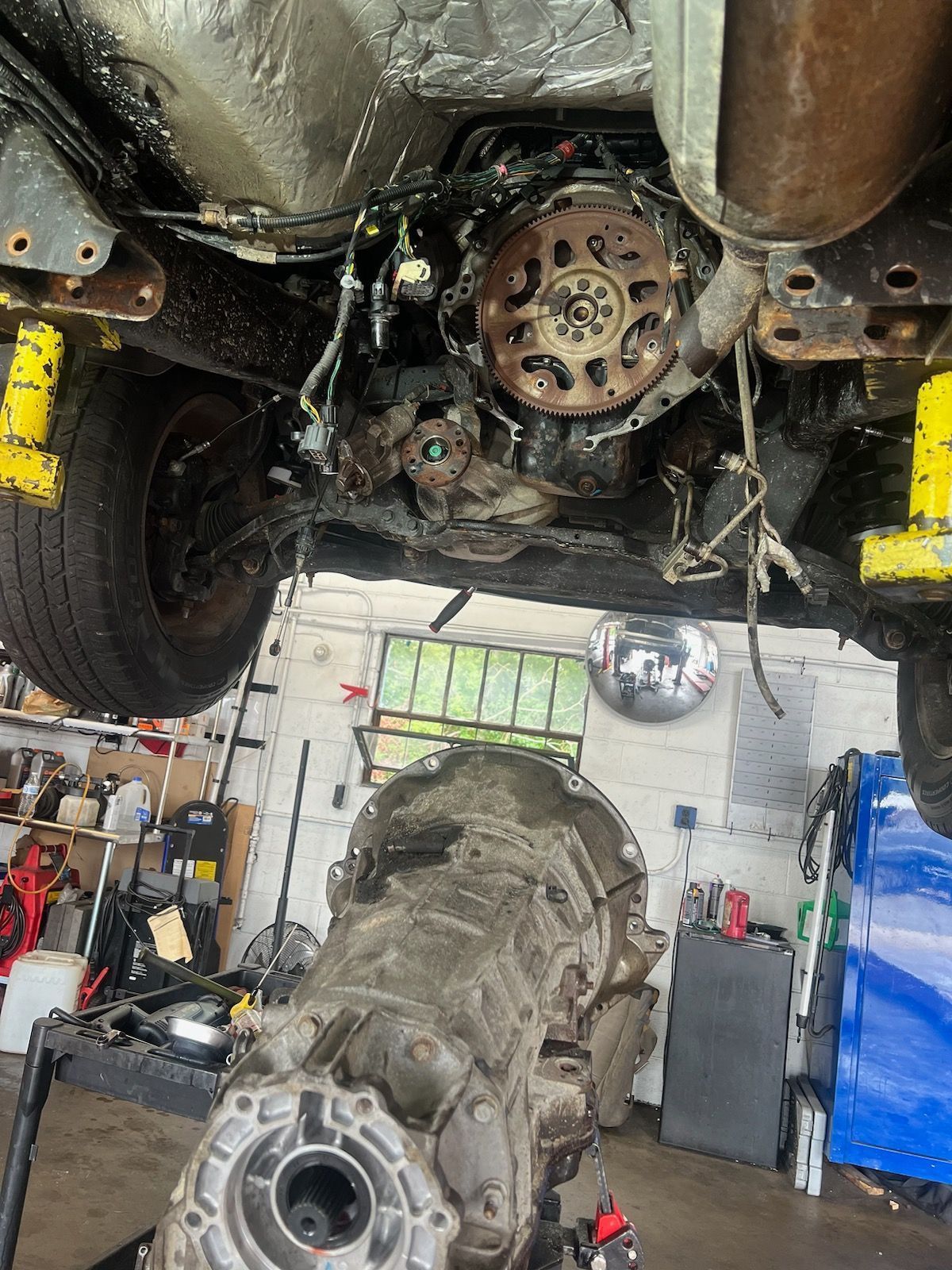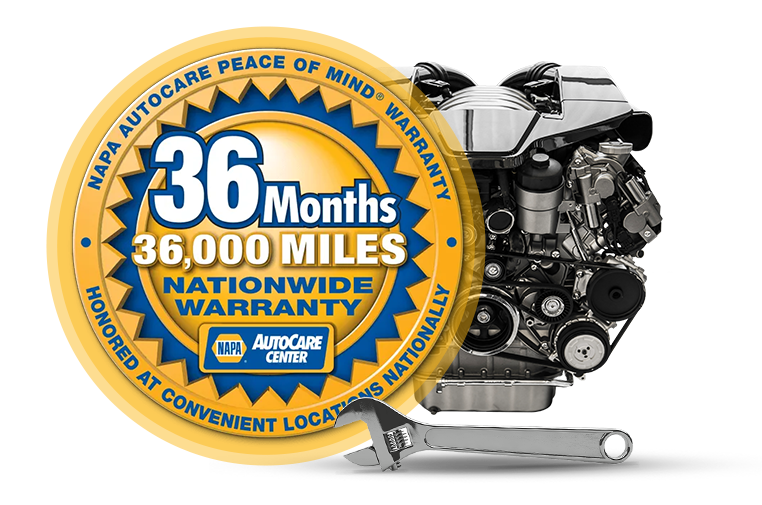transmission repair in Virginia Beach, Va
Master Certified Technicians ~ VA Inspection Station
Transmission Repair in Virginia Beach, VA


At 17th Street Automotive in Virginia Beach, VA, customers can find expert transmission repair services in Virginia Beach. Our ASE-certified technicians have over 35 years of experience in transmission repair and other auto repair services.
We offer comprehensive solutions for various transmission issues, from minor repairs to complete overhauls. Located conveniently in Virginia Beach, 17th Street Automotive aims to keep your vehicle running smoothly and efficiently. Book an appointment today!
Understanding Transmission Systems
Transmission systems transfer power from the engine to the wheels, allowing smooth gear shifts and efficient operation.
Types of Transmissions
There are several types of transmissions found in vehicles today:
- Manual: Requires the driver to shift gears using a clutch pedal and gear stick.
- Automatic: Changes gears on its own without driver input.
- CVT (Continuously Variable Transmission): Uses a belt and pulley system for seamless acceleration.
- Dual-clutch: Combines elements of manual and automatic for fast, smooth shifts.
Each type has its own benefits and maintenance needs. Manual transmissions often last longer but require more skill to operate. Automatic transmissions are easier to use but may need more frequent service.
Common Transmission Problems
Transmission issues can range from minor to severe. Some frequent problems include:
- Fluid leaks
- Worn clutch
- Faulty solenoids
- Damaged gears
- Failed torque converter
Regular transmission service can prevent many of these issues on your vehicle so bring it by for service.
Signs of Transmission Issues
Catching transmission problems early can save time and money. Watch for these warning signs:
- Slipping gears
- Delayed engagement when shifting into drive or reverse
- Burning smell
- Strange noises like whining or clunking
- Check engine light on
- Fluid that is dark or smells burnt
If you notice any of these signs, it's important to have your transmission checked by our professionals. Quick action can often prevent small issues from becoming major repairs.
Transmission Repair Process
Initial Diagnosis
When you bring your car in, mechanics start with a thorough inspection. They'll connect diagnostic tools to check for error codes. A test drive helps pinpoint unusual noises or behaviors.
Technicians examine fluid levels and quality. Low or dirty fluid often signals problems. They may remove the transmission pan to check for metal shavings or debris.
Based on these tests, mechanics determine the likely cause of the issue. This could be worn parts, electronic malfunctions, or fluid-related problems.
Repair vs Replacement
After diagnosis, we’ll decide if repair or replacement is best. Minor issues like worn seals or solenoids are usually fixable. Major internal damage might require a full replacement.
Repair costs and the car's age factor into this choice. Sometimes rebuilding the existing transmission is more cost-effective than a new one. Other times, a remanufactured unit offers better long-term value.
We’ll explain the options and help you make an informed decision.
The Repair Procedure
Once a plan is set, the actual repair begins. For minor fixes, mechanics may only need to replace specific parts. Major repairs involve removing the entire transmission.
Technicians disassemble the unit and clean all components. They replace worn or damaged parts with new ones. This might include gears, clutches, bands, or electronic components.
After reassembly, mechanics refill the transmission with fresh fluid. They perform a series of tests to ensure proper function. A final road test confirms the repair's success.
Throughout the process, we’ll keep you updated on our progress.
Maintenance Tips to Prevent Future Issues
Taking care of your transmission can save you from costly repairs down the road. Regular upkeep and good habits keep your car running smoothly for years to come.
Regular Service Intervals
Sticking to a maintenance schedule is key for transmission health. Most manufacturers suggest transmission service every 30,000 to 60,000 miles. This usually involves changing the transmission fluid and filter.
Transmission fluid breaks down over time. Fresh fluid helps parts move smoothly and prevents overheating. Dirty fluid can cause damage if left unchanged.
Some signs it's time for service:
- Shifting delays
- Strange noises when shifting
- Burning smell
Don't wait for problems to appear. Regular check-ups can catch issues early.
Best Practices for Transmission Care
- Always come to a complete stop before shifting gears.
- Avoid overloading your vehicle.
- Let your car warm up for a few minutes before driving.
- Use the right type of transmission fluid.
- Don’t ignore warning signs: slipping gears, leaks, etc.
Why Choose Us for Auto Repair?
TOP REASONS TO TRUST YOUR Vehicle WITH 17th Street Automotive
Discover the exceptional benefits and amenities at 17th Street Automotive, where we prioritize your comfort and convenience during every visit. We go the extra mile to enhance your auto repair experience in Wolfsnare Plantation.
Expert ASE Technicians
Quality Automotive Parts
Community Centered Shop
Family Owned & Operated
Loaner Vehicles Available Now, and Rideshare Options
Pick Up, Tow and Delivery Services
(Julie's Towing) 757-406-7601
Same Day State Inspections and Light Maintenance
Waiting Area with Free Wi-Fi, TV, Coffee/Drinks and Bathroom
Outside Waiting Area Benches
Pet Walking Path in The Rear
Easy Online Booking
Financing Options Available
Our Other Auto Repair Services
Our Location
Contact us today to schedule your auto repair service or book conveniently online.
Phone: (757) 425-8917
Hours: Mon - Fri 8:00 AM - 6:00 PM




